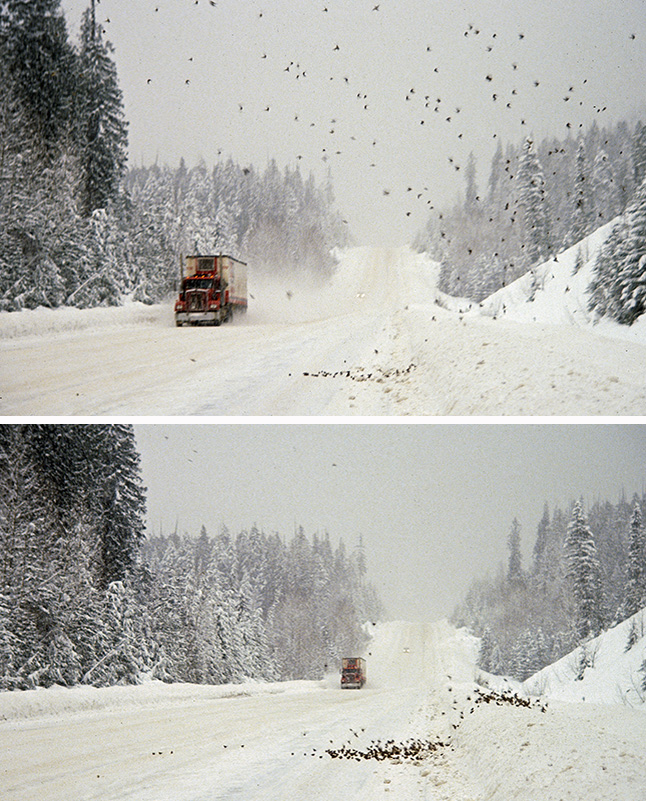
Every winter, flocks of resident songbirds including Pine Siskins, Red Crossbills and White-winged Crossbills over-winter in the Revelstoke area. These birds can be seen on and beside the Trans-Canada Highway in large numbers — sometimes flocks of up to 100 or even 200 small birds — picking up the freshly applied gravel used to keep the roadways safe.
“They use the gravel to process food in their gizzard,” Tawnya Hewitt, a Parks Canada Human-Wildlife Conflict Officer, said in a recent statement. “In the winter, it’s often covered in snow and harder to find. The fresh gravel on the road is easily accessible and attracts birds.”
Unfortunately, many birds are unable to fly away before being struck by passing vehicles. Birds left behind become an attractant to predators, such as pine martens and ravens. These predators are then at risk of also being hit by vehicles. The situation can also be challenging for motorists trying to avoid flocks or wildlife on roads during winter driving conditions.
In order to protect wildlife and visitors, Parks Canada would like to remind motorists to drive carefully, especially on days when fresh gravel has been applied to roadways. If there is a flock of birds, slow down and honk as this has proven to be an effective way of scaring the birds off the road.



